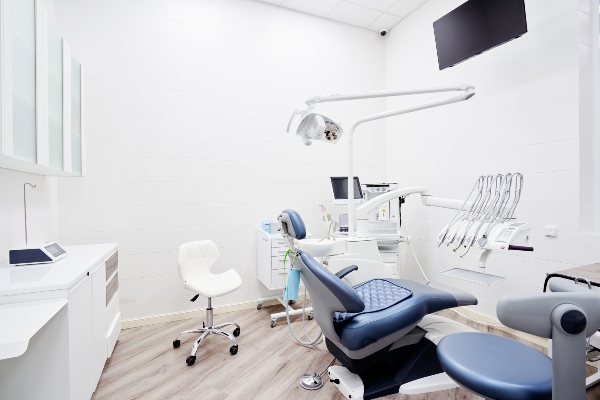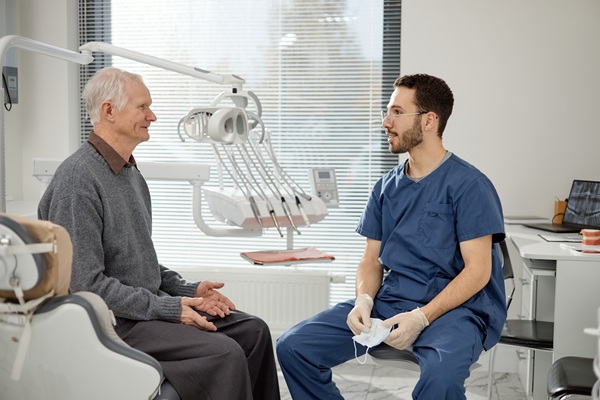Aftercare for Your Smile Makeover: Missing Teeth Treatments

When a permanent tooth is lost or damaged beyond repair, a smile makeover can provide various replacement options. Depending on the type of damage and the state of the patient's oral health, implants, crowns, bridges or partial dentures may be recommended. The recovery and aftercare required for tooth replacement differ based on the type of treatment plan suggested by the dentist.
Caring for a tooth replacement treatment
Before a dentist begins any type of smile makeover procedure, specific instructions for recovery, home care and follow-up appointments are discussed. These may vary depending on a person's needs or the extent of the dental work.
Crowns
When the root of a damaged tooth remains healthy and intact, crowns may be used to replace the exposed tooth. The natural tooth is reshaped to accommodate the new cap. A synthetic tooth covering, typically crafted from porcelain or ceramic, is cemented in place over the remnants of the natural tooth. Some can also be reinforced with metal if needed.
Crowns do not require any specific type of cleaning or home care other than normal brushing and flossing. Most dentists recommend rinsing daily with an antibacterial mouthwash to prevent decay or gum disease near the base of the crown. Recovery is usually low-key, with patients experiencing some sensitivity and soreness for a few days after the procedure. However, normal eating and drinking habits can resume right away.
Bridges
For a tooth that is missing completely, a dental bridge addresses the issue with methods similar to crown treatments. The synthetic tooth is attached to adjacent healthy teeth, forming a single, unified structure. Because of the nature of the finished product, certain steps must be taken to keep the area healthy and clean.
Like crowns, bridges may cause some discomfort immediately following the procedure. Fortunately, this tends to ease off in a few days. When brushing and flossing, patients must take extra care to clean below the bridge. Floss threaders and proxabrushes are designed to help clean dental work that requires this type of attention.
Implants
Dental implants provide long-lasting and realistic results for missing teeth. For this type of smile makeover, a small metal rod is inserted and fuses to the jawbone as it heals. Once the healing process is complete, a replacement tooth cap is attached to the exposed rod.
Due to the multiple-step nature of implants, recovery is lengthier than other methods. Patients typically experience some pain after having the rod installed. However, this subsides with healing. Traditional brushing and flossing are all that are required to care for dental implants.
Partial dentures
These custom dental appliances are designed to fit a patient's palate and remaining teeth for a cohesive look. Because this type of treatment is removable, it should be cleaned according to the dentist's instructions, which will vary based on the materials used in the device. Products designed to brush and soak dentures must be used for proper cleaning and storage.
Conclusion
All dental work should prompt patients to maintain excellent oral hygiene and regular checkups. However, different smile makeover treatments may require specific aftercare. A dentist can offer more guidance on how to properly care for treatment.
Request an appointment here: https://davisanddingle.com or call Davis & Dingle Family Dentistry at (803) 567-1804 for an appointment in our Columbia office.
Check out what others are saying about our services on Yelp: Read our Yelp reviews.
Recent Posts
Teeth grinding, also known as bruxism, is a common problem seen in dental practices. In fact, many people have this condition and do not realize it because it tends to happen while sleeping. Over time, this habit can damage teeth, cause jaw pain, and lead to other problems, making getting the right treatment crucial.Even though…
A preventive dentist is a trusted partner in maintaining your oral health and preventing serious dental issues before they occur. This dental professional emphasizes regular care and education, supporting long-term wellness and reducing the need for extensive procedures. As the cornerstone of modern dental care, preventive dentistry underscores early detection, regular visits, and informed patients.A…
Dental practices continue to serve as reliable sources of information for individuals seeking to maintain optimal oral health. However, myths often cloud the decision-making process related to daily care, recommended procedures, and overall dental well-being. Davis & Dingle Family Dentistry seeks to debunk the five most common dental myths to help people regain control over…
Dental practices remain a primary resource for those seeking a healthy smile and who wish to address oral health issues in a timely manner. However, locating a suitable provider can seem challenging if you do not know what to look for. Here are five factors to consider when conducting your search.Many patients have diverse dental…


